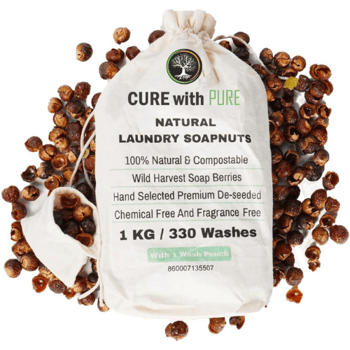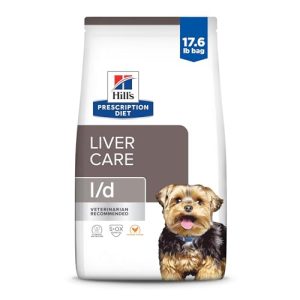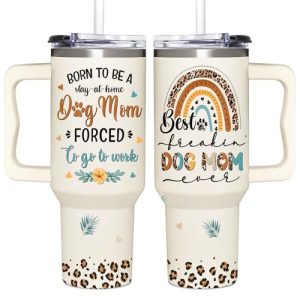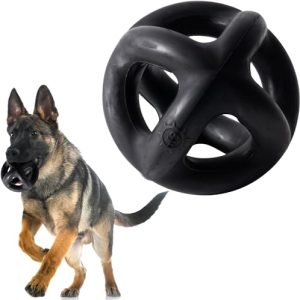Your dog’s toys are more than just playthings—they’re a source of joy, comfort, and even health. But have you ever stopped to think about how clean those toys really are?
Dirty toys can harbor germs and bacteria that might harm your furry friend. You want to keep your dog happy and safe, right? Learning how to wash dog toys properly is easier than you think, and it can make a big difference in your pet’s well-being.
Keep reading to discover simple, effective ways to clean your dog’s toys and keep playtime fun and healthy.

Credit: www.upgrademystatus.com
Choosing Safe Cleaning Methods
Cleaning dog toys is important for your pet’s health. You must pick safe ways to wash them. Some materials need gentle care. Others can handle stronger cleaning.
Using safe cleaning methods avoids damage to toys and keeps dogs safe from harmful substances. Always check what works best for each toy type.
Materials And Their Care Needs
Dog toys come in many materials. Each type needs special cleaning to stay safe and last longer. Soft toys need gentle washing. Hard toys can often be scrubbed or soaked.
- Rubber toys:Wash with warm water and mild soap. Avoid harsh scrubbing.
- Plush toys:Use a gentle cycle in the washing machine or hand wash carefully.
- Rope toys:Soak in warm water with mild detergent. Rinse well to remove soap.
- Plastic toys:Clean with warm soapy water and rinse thoroughly.
Avoiding Harmful Chemicals
Some cleaning products can hurt your dog. Avoid bleach and strong chemicals on dog toys. These can leave dangerous residues. Use pet-safe cleaners or natural options instead.
| Chemical | Risk | Safe Alternative |
| Bleach | Can irritate skin and mouth | Vinegar and water |
| Ammonia | Harmful fumes and residues | Mild dish soap |
| Strong detergents | May cause allergic reactions | Castile soap or baby shampoo |

Credit: www.youtube.com
Hand Washing Techniques
Keeping your dog’s toys clean helps prevent germs and keeps your dog healthy. Hand washing is a simple and safe way to clean most dog toys.
This guide explains easy hand washing steps you can follow at home to clean your dog's toys effectively.
Using Mild Soap And Warm Water
Use mild soap that is safe and gentle. Harsh soaps can leave harmful residues on toys.
Warm water helps to remove dirt without damaging the toy’s material.
- Fill a basin with warm water
- Add a small amount of mild soap
- Soak the toy for a few minutes
- Gently rub the toy to clean it
- Rinse thoroughly with clean water
Scrubbing Stubborn Dirt
Some dog toys collect tough dirt and grime. Use a soft brush to scrub these areas carefully.
Be gentle to avoid damaging the toy but firm enough to remove the dirt.
- Use a soft toothbrush or cloth
- Apply mild soap to the brush
- Scrub dirty spots in small circles
- Rinse the toy well after scrubbing
- Let the toy dry completely before use
Machine Washing Tips
Cleaning your dog's toys in a washing machine can save time. It also helps keep toys fresh and safe.
It is important to know which toys to wash and the best machine settings. This will protect the toys and your dog.
Selecting Suitable Toys
Not all dog toys can go in the washing machine. Choose toys made from strong, washable materials.
- Soft plush toys without electronic parts
- Rubber or nylon chew toys
- Fabric toys labeled as machine washable
- Avoid toys with stuffing that may clump
- Do not wash toys with batteries or electronics
Proper Washing Machine Settings
Use gentle settings to avoid damage. Hot water can clean well but may harm some toys.
| Setting | Recommendation |
| Water Temperature | Warm or cold water |
| Cycle Type | Gentle or delicate cycle |
| Detergent | Mild, pet-safe detergent |
| Spin Speed | Low to prevent tearing |
Place toys in a mesh laundry bag to protect them during washing. Remove toys promptly to air dry.
Disinfecting Dog Toys
Dog toys can carry dirt and germs after playtime. Cleaning them helps keep your dog healthy.
Disinfecting dog toys kills bacteria and prevents infections. Use safe methods for your pet.
Natural Disinfectants
Natural disinfectants are safe and easy to use on dog toys. They avoid harsh chemicals.
Vinegar and baking soda work well to clean and disinfect toys. Use them regularly.
- Mix equal parts white vinegar and water
- Soak toys for 30 minutes
- Scrub toys with baking soda paste
- Rinse well with clean water
Safe Commercial Products
Some commercial cleaners are safe for dog toys. Check for pet-friendly labels.
Use sprays or wipes made for pet items. Follow instructions for best results.
- Look for non-toxic and fragrance-free products
- Use disinfectant sprays on hard toys
- Clean fabric toys with pet-safe detergents
- Rinse toys thoroughly after cleaning
Drying And Storage Advice
Cleaning your dog’s toys is important to keep them safe and fun. After washing, drying and storing the toys properly helps them last longer.
Good drying and storage stop germs and keep toys fresh for your pet to enjoy.
Air Drying Best Practices
Air drying is the safest way to dry dog toys. It stops damage that heat can cause.
Place toys in a clean, dry spot with good airflow. Avoid direct sunlight to stop colors from fading.
- Use a clean towel to remove extra water before drying.
- Spread toys out so air reaches all sides.
- Dry soft toys in a shaded area to keep fabric strong.
- Check toys for damp spots before giving them back to your dog.
Keeping Toys Fresh And Safe
Store toys in a dry place to prevent mold and bad smells. Keep them away from dirt and pests.
Use containers or baskets that allow air flow. Clean storage helps keep toys safe for your dog.
- Wash storage containers often to avoid bacteria build-up.
- Sort toys by type to find them easily.
- Throw away toys that are broken or very dirty.
- Regularly check stored toys for damage or dirt.
Signs To Replace Dog Toys
Dog toys can wear out over time. It’s important to know when to replace them. Old toys can harm your dog’s health.
Check your dog’s toys regularly. Look for signs that show they need replacing. This keeps your pet safe and happy.
Wear And Tear Indicators
Dog toys get damaged with use. Look for frayed edges or missing pieces. These can be signs that a toy is no longer safe.
Broken toys can cause choking. They might also have sharp edges that can hurt your dog. Check toys for these issues often.
- Frayed fabric or strings
- Missing or broken parts
- Sharp or rough edges
Health Risks Of Old Toys
Old toys can carry bacteria. This can make your dog sick. Replace toys that smell bad or look dirty.
Some toys may have mold. Mold can cause health problems for dogs. Always check for black spots or a musty smell.
- Unpleasant odors
- Visible mold or mildew
- Sticky or slimy surfaces

Credit: www.reddit.com
Frequently Asked Questions
How Often Should I Wash My Dog’s Toys?
Wash your dog’s toys weekly to prevent bacteria buildup. Regular cleaning keeps toys safe and odor-free for your pet.
What Is The Best Way To Clean Plush Dog Toys?
Hand wash plush toys with mild detergent in warm water. Rinse thoroughly and air dry to maintain softness and safety.
Can I Put Rubber Dog Toys In The Dishwasher?
Yes, most rubber dog toys are dishwasher safe. Use the top rack and a gentle cycle for effective cleaning.
How Do I Remove Tough Stains From Dog Toys?
Soak toys in a mixture of vinegar and water. Scrub gently with a brush, rinse well, and air dry completely.
Conclusion
Keeping your dog’s toys clean helps keep your pet healthy. Regular washing removes dirt and germs easily. Use gentle soap and warm water for best results. Some toys can go in the washing machine too. Dry toys completely before giving them back to your dog.
Clean toys last longer and stay safe for play. Make washing toys part of your routine. Your dog will thank you with happy, healthy playtime. Simple care makes a big difference in your pet’s life.

Emily Barker is the founder of ChillDogLife.com, a space dedicated to helping pup parents discover the best dog products, lifestyle tips, and cozy ideas for happier homes.
A lifelong dog lover, Emily combines her passion for pets with a knack for research to share trusted recommendations on everything from toys and furniture to health and everyday care.
Her goal is simple: to make life easier, stylish, and more joyful for dogs and the people who love them.







